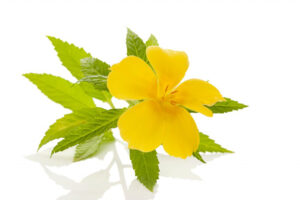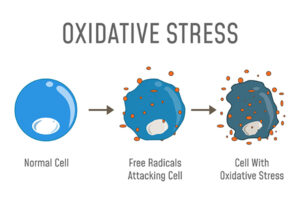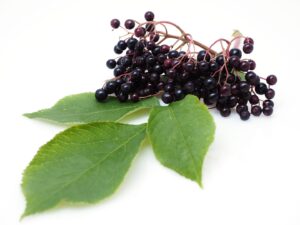
Improving Libido and Male Function, Naturally
‘Issues with male function’ denotes a variety of problems, including those related to impotence and lack of desire. Statistical data
Polycystic ovary syndrome (PCOS) is a condition where the woman’s body produces an excessively high level of male sex hormones (called androgens), thereby causing cysts to form around the ovaries.
Although PCOS is a very common gynecological problem, research shows that about 70% of women with polycystic ovaries are not aware of this issue and will often be diagnosed with difficulty getting pregnant.
In a normal state, the ovaries produce the female hormones estrogen and progesterone along with a small amount of androgens. However, women with polycystic ovaries have a hormonal imbalance – which causes an increased production of male hormones (androgens), an increase in the ratio of FSH:LH hormones (a ratio of 2:1 respectively), a low progesterone level and an increase in the secretion of the hormone insulin, against a background of ‘insulin resistance’.
The hormonal imbalance caused by PCOS causes the irregularity or absence of ovulation, irregular periods and little or no menstruation. Women with PCOS find it difficult to get pregnant and may also suffer from obesity in the lower abdomen area, hair loss in the forehead and sides of the head, acne and excess body fat.
Treating PCOS with traditional herbal medicine
The natural treatment of polycystic ovary syndrome focuses on medicinal plants that have a centuries-old tradition of treating hormonal problems. These plants fall into 3 main categories:
Herbalists (complementary medicine practitioners who specialize in the treatment of medicinal plants) will formulate a combination of herbs that fall within these three categories in order to help the female hormonal system regulate itself and return to normal function.
In this way, the body slowly returns to balance naturally, with normal ovulation and regular cycles, weight loss, normal hair growth, and more.
Which herbs are used to treat polycystic ovaries?
Abraham’s Bush (Vitex)
Abraham’s Bush is among the most well-known plants in Western herbal medicine for the treatment of gynecological problems. Although scientific research on it is still limited, Abraham’s Bush has been used to assist with hormonal balance, to regulate ovulation, and improve fertility. Abraham’s Bush has also been shown to balance high prolactin levels and promote the secretion of the hormone progesterone, especially in women with polycystic ovaries. It is used to regulate the menstrual cycle, relieve symptoms of premenstrual syndrome and period pains, and to increase milk production in lactating women.
Tribulus Terrestris (Puncture Vine)
In recent years, Tribulus Terrestris has been proven to be effective in treating fertility problems and in balancing menopausal symptoms in women. It also increases libido in women and men.
In traditional herbal medicine, Tribulus Terrestris is used to support fertility – for both women and men. It is also commonly used to increase energy and vitality levels.
Scientific research has been successful in identifying the active components of tribulus that help treat fertility problems. The main active component is called Protodioscine – which binds to estrogen receptors and gently stimulates them to secrete the hormone.
Note: a subgroup of the participants took Tribulus together with Epimestrol – a medicine used to stimulate ovulation. Of these, 39% became pregnant. The results of the study showed an improvement in fertility when the drug to stimulate ovulation was taken at the same time as tribulus extract, as compared to taking the drug without Tribulus extract.
Chinese Angelica
Known in traditional herbal medicine as the ‘female ginseng’, Chinese Angelica is an important and central plant for balancing and strengthening the function of the female hormonal system. It is often used to treat various problems related to the female reproductive system, such as irregular, scanty or absence of menstruation, premenstrual syndrome, polycystic ovaries and endometriosis. Angelica is considered a plant that “moves blood” and improves its flow to the pelvic organs.
Researchers reviewed 40 clinical studies involving 4,247 women with infertility.
The results indicated that taking Chinese herbs for 3–6 months resulted in an almost 2 times higher chance of achieving pregnancy, as compared to conventional drug treatment, among women struggling with fertility (including infertility due to polycystic ovaries).
The researchers also noted taking Chinese herbs also affected fertility indicators such as: ovulation rates, thickening of thin uterine tissue and more.
Vitamin D
Vitamin D is essential for regulating the hormonal system and reducing insulin resistance. Studies have shown that vitamin D deficiency is common among women with polycystic ovaries, and that taking a vitamin D supplement may contribute to improving irregular periods and ovulation.
After 12 weeks of treatment with vitamin D3, the testosterone levels in the blood, the parathyroid gland hormone and as the excess rate index decreased significantly – while the levels of vitamin D, of phosphorus and of the protein SHBG increased significantly. (The SHBG protein is a carrier protein that binds the male sex hormones to it in the blood. Binding to it makes the hormones unavailable for use by the body, thereby decreasing the symptoms associated with high/excess hormone levels.)
Significant changes were also observed in the ovarian volume, the number and size of the follicles and in the regularity of the menstrual cycle.
Researchers concluded that taking a vitamin D3 supplement contributes to improving the levels of vitamin D in the body (in its stored form), and to improving hyperthyroidism indicators and male hormone levels. The findings also indicate an increase in fertility indices and an improvement in gynecological health indices among obese women diagnosed with polycystic ovaries. The addition of vitamin D3 should be considered as a treatment for these patients.
Disclaimer: Medicinal plants are not drugs. The purpose of this article is to provide a general overview of approaches in complementary medicine and the information provided does not constitute a qualified medical recommendation. This article is not intended to diagnose or treat any disease and is not a substitute for medical advice or treatment. Always contact your health practitioner before starting any nutritional supplement programs.

‘Issues with male function’ denotes a variety of problems, including those related to impotence and lack of desire. Statistical data

The effect of oxidative stress on male fertility and sperm quality indicators.
Fertility problems are very common, affecting approximately 1 in 6 couples.

In recent decades, women throughout the world have turned to traditional medicine to balance hormonal function and to treat common
Sign up for our fertility guidance campaign.
Get information, tips, and advice regarding fertility and relationships via email.

כשרות
Vida’s dietary supplements are not medicine. They are not intended to diagnose, treat, cure or prevent any disease. In case of a medical concern, please consult your attending physician.
Vida products are manufactured in a factory that meets the requirements of the GMP for proper manufacturing conditions. The information provided about them has not been evaluated by the GMP.
The information provided on this website is for informational purposes only and is not intended as a substitute for advice from your physician or other health care professional. You should not use the information on this site to diagnose or treat any health problem or condition. Always consult with a healthcare professional before starting any diet, exercise or nutritional supplement program, before taking any medication, or if you suspect you might have a health problem.
Always read the information included with your product for the most up-to-date nutritional information.
FDA Disclaimer: These statements have not been evaluated by the Food and Drug Administration. This product is not intended to diagnose, treat, cure or prevent any disease.
designed by b-splash.com | powered by c-site.co.il
Get information, tips, and advice regarding fertility and relationships.